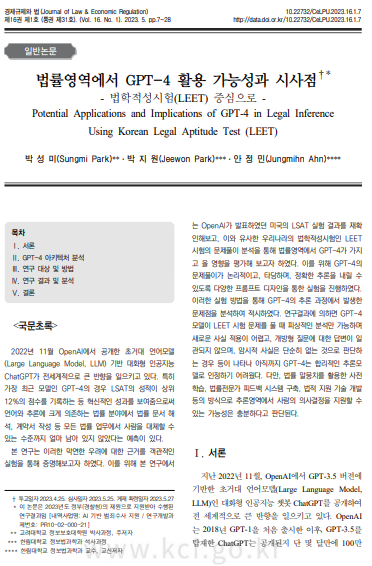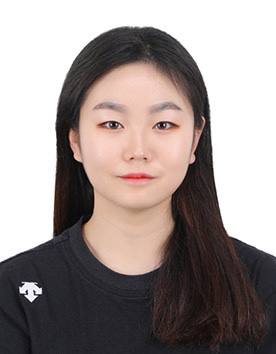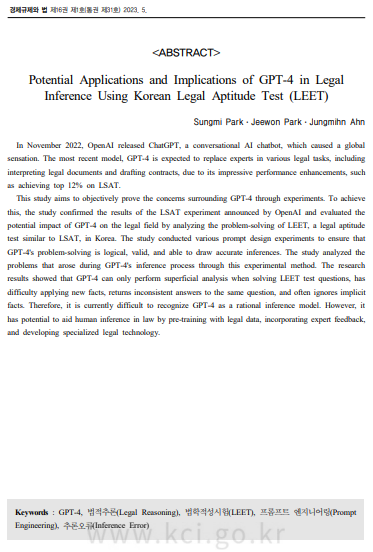We are excited to announce that research paper titled “Potential Applications and Implications of GPT-4 in Legal Inference Using the Korean Legal Aptitude Test (LEET)” by Sungmi Park from HM Company, Jee Won Park(MSc Course) from LIFS lab, and Professor Jung Mihn Jamie Ahn from The School of Global Studies, Hallym University has been recently published in the academic journal, the Journal of Law & Economic Regulation (The Law Research Institute Seoul National University).The paper’s publication was confirmed on May 27, 2023, and it has also been indexed by KCI.
The primary objective of this study is to verify the performance of GPT-4 on legal tasks, specifically in interpreting legal documents. By confirming the LSAT experiment results announced by OpenAI, the study aims to reveal capabilities and limitations of GPT-4, as well as to objectively demonstrate its legal inference abilities through experimentation.
The study aims to validate GPT-4’s problem-solving abilities in legal inference by utilizing the Legal Aptitude Test (LEET) in Korea, which is akin to the LSAT. This assessment will help evaluate the potential impact of GPT-4 on the field of law.
To achieve the research objectives, the study conducts various experiments involving prompt design to ensure logical and valid problem-solving by GPT-4. The focus is on accurate inference drawing. By analyzing the challenges faced during GPT-4’s inference process, the study aims to provide a comprehensive evaluation of its performance. The research also explores GPT-4’s ability to apply new facts, consistency in providing answers, and consideration of implicit information.
This study highlights the importance of objectively assessing the concerns surrounding GPT-4’s impact on legal tasks. Through rigorous experiments and analysis, the research reveals the current limitations of GPT-4 in terms of logical inference and accurate problem-solving. The findings emphasize the need for further refinement and development of GPT-4, particularly in the context of legal applications. Despite its limitations, GPT-4 holds potential to enhance human inference in the legal field by leveraging legal data, expert input, and specialized legal technology.





